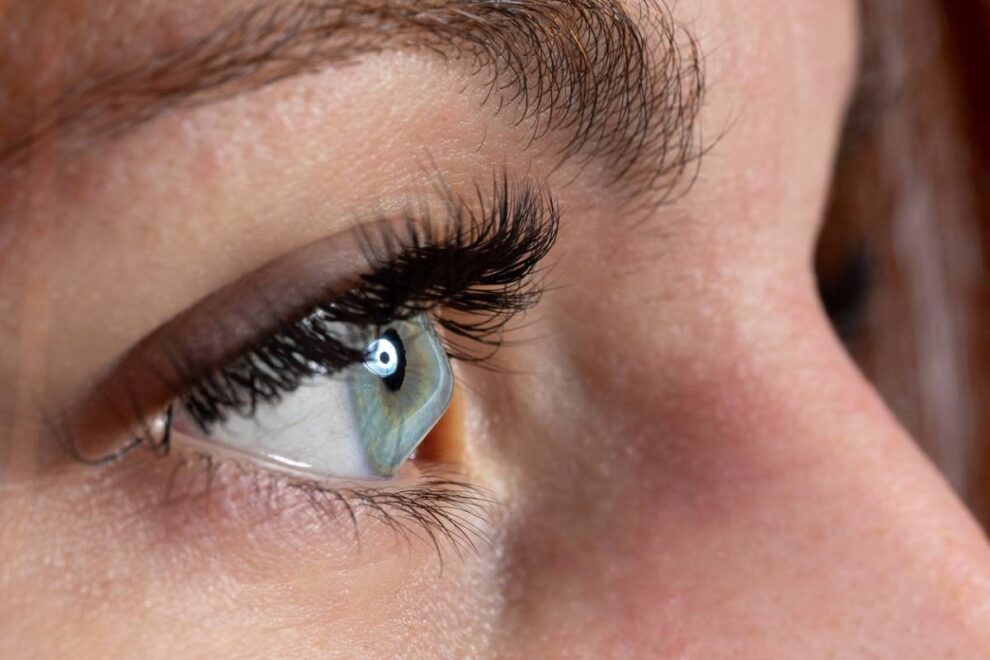Posted by: Caster Eye Center in Uncategorized


Keratoconus is a progressive eye condition that affects the shape of your cornea, leading to impaired vision and increased sensitivity to light. With the progression of medical technology, scientists have developed laser eye surgery, a procedure that can seem like a beacon of hope for improved vision. This leads many to the question, “Can keratoconus patients have laser eye surgery?” Unfortunately, there may be some factors of the surgery that can cause complications with this condition. Since laser eye surgery thins the cornea, your laser eye surgeon may not recommend that Keratoconus patients undergo laser eye surgery.
Learn the relationship between keratoconus and laser eye surgery, focusing on why traditional procedures like LASIK are generally not recommended for these individuals. Thankfully, there may be alternative treatment options available to you. Always consult with an eye care professional to determine the best course of action. Understanding why and influencing factors can help you navigate the complexities of vision correction with keratoconus.
Should Keratoconus Patients Have Laser Eye Surgery?
A defining feature of keratoconus is the weakening and thinning of the cornea. Laser refractive surgery techniques are ill-advised because it is a degenerative disease that involves the removal of tissue from your already thinning cornea, weakening its structure and integrity. Even though LASIK is not recommended for keratoconus patients, there may be other treatment options available to help improve your vision. To better understand your treatment options, you will want to consult with an experienced eye surgeon. Your eyes are delicate and require gentle care. An experienced healthcare professional can advise you of options, inform you of expected outcomes, and guide you through the process every step of the way.
Understanding Keratoconus
This degenerative eye disease affects approximately 1 in 2,000 individuals, with the condition being more prevalent among the young adult population, particularly those of Eastern descent. While these populations are at a greater risk of keratoconus, it does not discriminate and anyone can develop keratoconus.
What You Need to Know About Keratoconus:
- Affects the structure of the cornea, resulting in loss of vision.
- Early stages can be treated with glasses, but as it progresses, a corneal transplant may be necessary.
- It has no known prevention measures.
- A family history of keratoconus can increase the risk of its development.
Surgical Treatment Options for Keratoconus
Laser eye surgery may not be the best option for you if you suffer from keratoconus, but another surgical treatment that may be a viable option is corneal collagen cross-linking. It is a minimally invasive procedure that slows or halts the progression of the condition. This is achieved by making collagen bonds stronger, allowing them to become stiffer and typically reduce bulging.
Corneal transplantation is another surgical option for treatment. This procedure is usually the last stop for treatment of keratoconus. A licensed eye surgeon performs this outpatient procedure and replaces your cornea with a donor cornea.
The procedure entails the careful removal of your cornea followed by a donor cornea sewn into place using exceptionally small sutures. Donor corneas, with the permission of next of kin, come from a recently deceased individual.
Immediately after your transplant, your vision may take months to come into focus. To avoid rejection, your surgeon will prescribe medication that you must adhere to. This is true for any transplanted tissue. You will likely be prescribed an anti-inflammatory eye drop. You also likely require glasses or contact lenses to get the clearest vision following your corneal transplant.
Another treatment available for keratoconus is intracorneal ring segments. C-shaped rings are used to flatten the surface of your cornea and refract light more efficiently. It is an effective treatment option. However, it is not a cure. It does not stop the condition from progressing. It is performed by creating small tunnels between layers in the stroma so the special implants can be placed.
In any case, always consult with experienced healthcare professionals before undergoing any eye treatments. Your healthcare team will help determine the best treatment for you, help you prepare, monitor healing, and address any complications that arise.
Making the Best Decision To Improve Your Vision
Laser eye surgery may not be the best solution if you have keratoconus. Still, medical advancements are happening constantly, offering new possibilities if you are trying to manage this challenging condition. Specialized treatments like corneal cross-linking or advanced contact lens options are becoming more effective, and eye surgeons are becoming more efficient in treating keratoconus patients.
Eye Surgery in Lost Angeles
Call an experienced eye surgeon today to schedule a consultation to discuss treatment options for keratoconus.